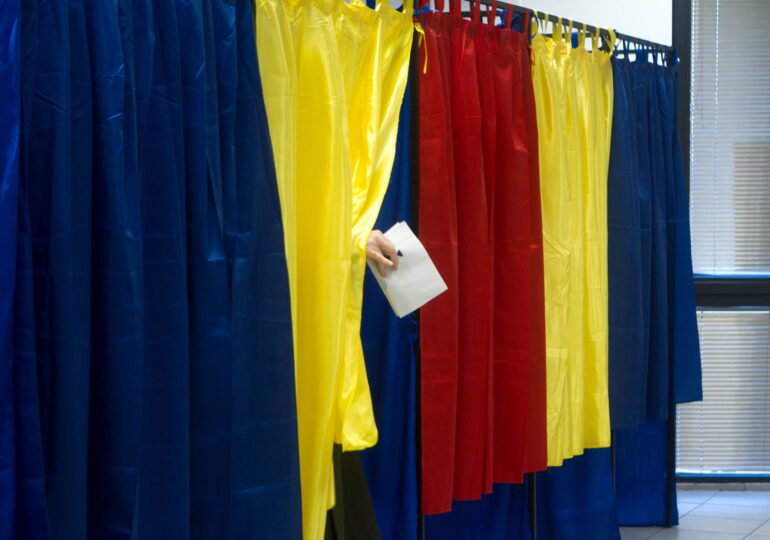The New York Times published an extensive article entitled „Why the MAGA Right Became Obsessed With the Romanian Election,” dedicated to the political crisis in Bucharest.
American journalists reconstruct step by step how a surprise candidate won the first round, how the Constitutional Court annulled the vote due to a Russian operation on TikTok, and why the entire MAGA ecosystem – from Donald Trump, Jr. to Elon Musk – mobilized to support him.
"Georgescu and Trump are in the same situation"
"Georgescu and Trump are in the same situation. The difference is that one is the 47th president, and the other is destroyed by the system," consultant Adrian Thiess tells American journalists.
Through this comparison, The New York Times introduces the central character - Călin Georgescu, a 62-year-old agronomist propelled by an anti-NATO campaign and 25,000 fake accounts on TikTok.
The publication notes that viral images (Georgescu riding a horse, practicing judo, or plunging into a frozen lake) imitated the "flamboyant" iconography of Vladimir Putin.
TikTok, Cryptocurrencies, and "The Largest Bot Farm"
According to the cited services, two Kremlin-linked phantom firms paid around 150 Romanian influencers in cryptocurrency to promote sovereignist messages before the official start of the campaign. Thus, NYT claims, "an army of 25,000 accounts - some dormant since 2016 - flooded the platform, pushing Georgescu to the top of the algorithm."
"It was the wonderful law of multiplying the five loaves and two fishes," the candidate jubilated after the 2.1 million votes in the first round, the publication reports.
The Shock Decision of the Constitutional Court: "The Poisoned Chalice"
After President Klaus Iohannis convened the Supreme Defense Council and presented a report on Russian interference to NATO allies, the only institution capable of intervening was the Constitutional Court.
On December 6, the judges annulled the election and ordered its rerun in over six months. Court President Marian Enache is quoted by NYT with the metaphor: "If you knew the glass of water contained a dose of poison, would you try to remove it or choose another glass?"
How MAGA Got Involved
On the same night, Donald Trump Jr. wrote on X: "Look at what's happening in Romania! Another Soros/Marxist attempt to deny the will of the people."
From there, NYT writes, the topic exploded on the American right: Alex Jones, Steve Bannon, Jack Posobiec, Tucker Carlson, and even Elon Musk interviewed or promoted Georgescu. Posts with "Romania" or "Georgescu" gathered "over 900 million views" between December and March.
Vice President J. D. Vance, invited to the Munich Security Conference, accused Bucharest of "simply annulling the election result on flimsy evidence."
For the present Romanian diplomats, NYT reports, the statement was a shock - a signal that Trumpist Washington does not believe the official version about Russian interference.
Revolt Plans and "Vlad Țepeș Command"
The American newspaper details two violent attempts discovered by authorities.
On one hand, the mercenary Horațiu Potra, nicknamed "Romania's Wagner," who allegedly gathered weapons and grenades for a "January 6 in Bucharest."
Then, the "Vlad Țepeș Command" group, led by a 101-year-old general, who allegedly plotted to bring "at least two million people" to the streets, change the country's flag and anthem.
These scenarios, the publication notes, suggest that "Russian interference was not limited to talk shows."
Why Nicușor Dan Won
The rerun of the elections on May 18 turned into a confrontation between George Simion (the sovereignists' figurehead after Georgescu's ban) and the anticorruption centrist Nicușor Dan. NYT reproduces the atmosphere at the People's House, where Simion prematurely proclaimed himself the "new president," although exit polls showed him defeated.
The final result - 54% to 46% for Dan - was quickly validated, and fraud allegations did not mobilize the masses.
In a final quote, the president-elect tells the American reporter: "The annulment of the election was a sign of weakness, but we had no other way. It will take years to regain people's trust."
The fact that The New York Times - a reference newspaper for the global press - dedicated such an extensive piece to the Bucharest elections could indicate two major trends. On the one hand, Romania becomes a testing ground for digital propaganda: platforms like TikTok can flip an election in just one month, warns the investigation.
On the other hand, globalization of populism should also be considered: the MAGA network and European sovereignists are increasingly visibly cooperating, turning a local case into a transatlantic narrative war.

